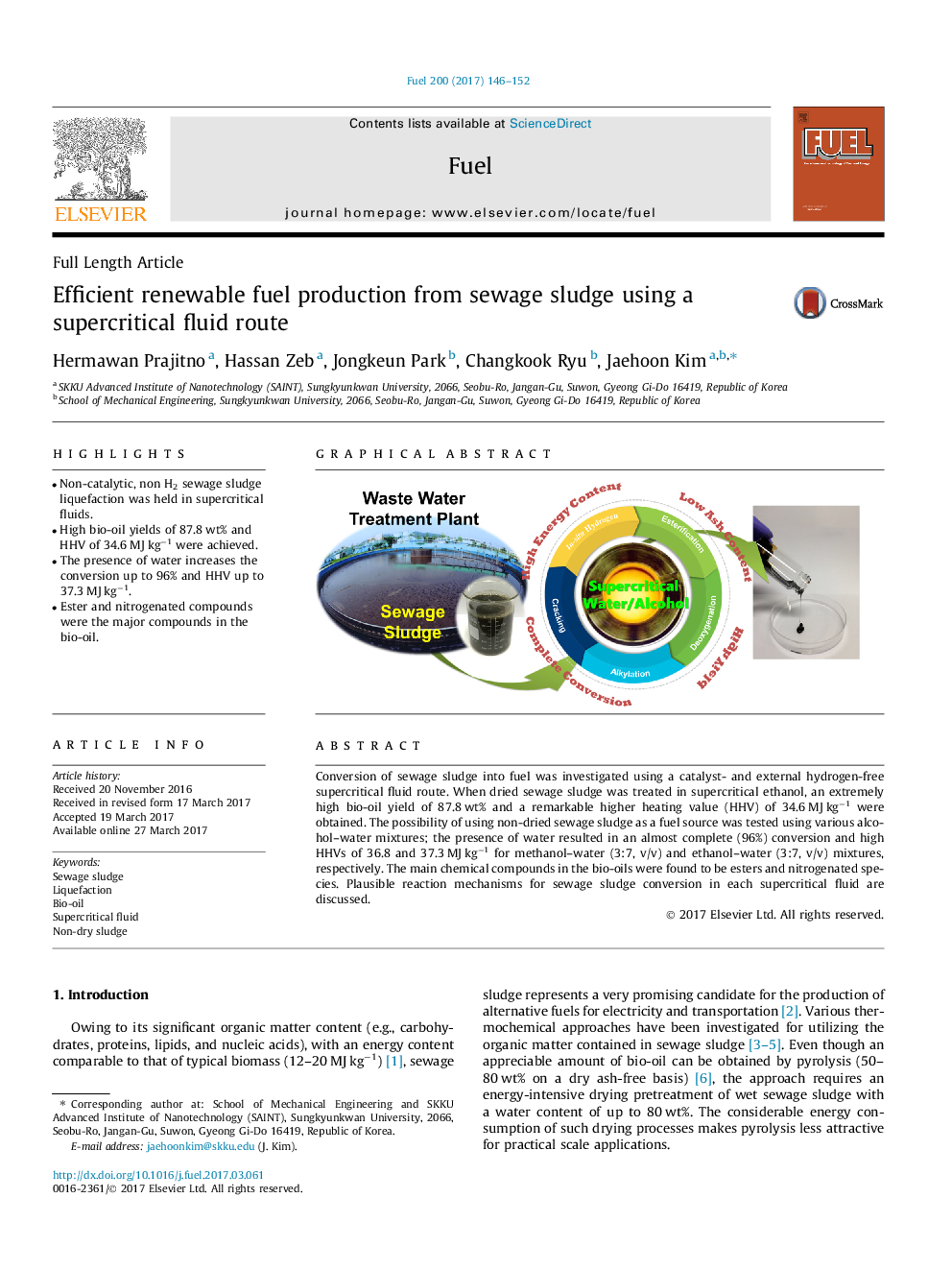| Article ID | Journal | Published Year | Pages | File Type |
|---|---|---|---|---|
| 6473702 | Fuel | 2017 | 7 Pages |
â¢Non-catalytic, non H2 sewage sludge liquefaction was held in supercritical fluids.â¢High bio-oil yields of 87.8 wt% and HHV of 34.6 MJ kgâ1 were achieved.â¢The presence of water increases the conversion up to 96% and HHV up to 37.3 MJ kgâ1.â¢Ester and nitrogenated compounds were the major compounds in the bio-oil.
Conversion of sewage sludge into fuel was investigated using a catalyst- and external hydrogen-free supercritical fluid route. When dried sewage sludge was treated in supercritical ethanol, an extremely high bio-oil yield of 87.8Â wt% and a remarkable higher heating value (HHV) of 34.6Â MJÂ kgâ1 were obtained. The possibility of using non-dried sewage sludge as a fuel source was tested using various alcohol-water mixtures; the presence of water resulted in an almost complete (96%) conversion and high HHVs of 36.8 and 37.3Â MJÂ kgâ1 for methanol-water (3:7, v/v) and ethanol-water (3:7, v/v) mixtures, respectively. The main chemical compounds in the bio-oils were found to be esters and nitrogenated species. Plausible reaction mechanisms for sewage sludge conversion in each supercritical fluid are discussed.
Graphical abstractDownload high-res image (128KB)Download full-size image
